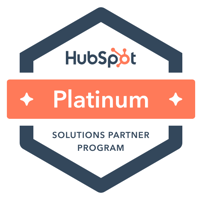The reality is that a robust marketing automation strategy can help you to reach more prospects, more quickly, and with messaging that's more relevant to their needs, interests, and concerns. Of course, the biggest room in the world is the "room for improvement," right? With that in mind, which opportunities are available to you in terms of expanding your marketing automation process?
Maybe you'll get some inspiration by looking at the following 5 trends to watch for in 2022.

5 Marketing Automation Trends You Need to Watch Out For
1. Content will continue to become more personalized
It's no secret that personalized content makes a huge difference in terms of attracting and engaging prospects. The sheer volume of electronic communications we receive each day is staggering. Only with relevant and compelling content will your company cut through the noise, and reach your target demographic.
Expect to see marketing content become more and more personalized in 2022. Companies will likely leverage data collection and analysis techniques to further refine their existing processes. For instance, many businesses will no doubt use social listening, first-party data, and transaction history to more accurately segment consumers into sub-groups, and then develop content tailored to their particular needs.
2. Automation specialists will focus on being "mobile-friendly"
More people than ever before rely heavily on their mobile devices for information, education, and entertainment. Millennials and Gen Z-ers in particular are known to be avid smartphone users. Marketers who want to target these demographics absolutely must develop effective "mobile-first" strategies.
Expect to see mobile-first marketing tools become even more popular than they already are. These include in-app ads, push notifications, and SMS alerts and reminders. Of course, companies will continue to invest in web design that's mobile-responsive, and even in email automation software that takes mobile best practices into account.
As a closely related side note, marketers will almost certainly pay more attention to generating content optimized for voice commands. Voice search is often a "zero-sum game," so expect companies to invest heavily in this area as well.
3. Expect to see more chatbots and conversational marketing tools
Conversational marketing is a powerful strategy for engaging with prospects and leads. Modern consumers are more interested in the overall "customer experience" than ever before. They are also likely to remain loyal to brands that consistently treat them well. Of course, the inverse is also true: one bad experience can quickly convince a customer to jump ship and do business with the competition instead.
With conversational marketing techniques, companies can position themselves as caring for and being sympathetic towards their users. In practical terms, chatbots can almost instantaneously engage with website visitors, and either solve simple, routine issues that come up or connect users with live agents who can offer further assistance.
Chatbots will never replace human reps. However, they do offer the advantage of being on the job 24/7. They can help growing companies manage high traffic volume to their site.
4. Companies will utilize more AI and machine learning capabilities in their marketing process
Artificial intelligence and machine learning are, in many ways, the "heart and soul" of marketing automation. After all, automation is all about removing the need for humans to perform tasks that are either too mindless and repetitive or too complex and difficult. You'll no doubt observe companies in 2022 leaning more heavily into the AI/ML sector in order to beef up their marketing capabilities.
As an example, consider AI-powered writing tools. Marketers who have a full plate of activities (or even a bad case of "writer's block") now have the option to utilize AI-powered platforms to compose email subject lines, suggest blog topics, as well as generate social media ad copy. It's fast, it's convenient, and it frees up precious time for your team to focus on other mission-critical tasks.
5. Organizations will use automation to more closely align sales and marketing
In the past, the antipathy that your typical sales team felt towards marketing (and vice versa) was proverbial. Now, sales and marketing teams are able to work closely together in order to achieve their common goal: moving the prospect through the sales funnel, and towards a final purchase decision. A major contributing factor to such organizational harmony is (you guessed it): intra-organizational automation.
This internal automation empowers both departments to operate under the umbrella of clearly defined and standardized procedures, with virtually complete visibility into each prospect's customer journey. For instance, when both teams are plugged into a "single source of truth" (typically a company's CRM system), then they can both understand key factors such as:
- Whether the lead is marketing qualified, or sales qualified
- Where the lead is in terms of the sales/marketing funnel, and what actions need to be taken to help them progress to the next stage
- Which leads should be prioritized by either team (in this regard, it's especially helpful when the CRM includes a robust lead scoring feature)
- When, how, and who to retarget with specific ads and promotional messages
The bottom line? When there's true synergy between your sales and marketing teams, then you'll absolutely see your ROI go through the roof. Companies that recognize this truth and are willing to invest in the creation of such synergy will show it by doubling down on internal automation.
Final Thoughts
Without a doubt, the marketing automation sector will continue to grow in 2022, and in the years to come. Expect to see the 5 trends discussed above continue into the indefinite future. And if you haven't already jumped on board the "automation bandwagon," now is the time to do so. The sustainability and growth of your business may very well depend on it.
Would you like to learn more about how to successfully implement marketing automation? Then reach out to our team of friendly experts at OverGo Studio today for a free, no-strings-attached consultation.
Take advantage of our free Hubspot CRM Configuration to start modernizing your sales process. This is a limited-time offer where we will design a sales pipeline specifically for your business. Start generating more revenue and improve your close rates by building your first high-performing sales pipeline on HubSpot at no cost. Simply schedule a discovery session with our team of HubSpot experts.


